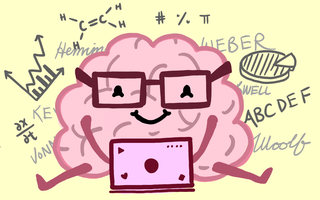As the growing presence of laptops changes the Harvard classroom, students and professors are working out new rules to determine the computers’ proper place.
Some embrace their use in lecture halls, saying laptops allow students to take faster notes and look up references that may have eluded them.
Others have banned computers from their classrooms completely, arguing that they distract students and damage the classroom dynamic.
To date, no College-wide policy exists.
Dean of the College Benedict H. Gross ’71 said he thought the issue was best resolved on a case-by-case basis.
“I think this is the sort of question that should be left to the person teaching the class,” he wrote in an e-mail.
At the Business School, a technological trick deactivates wireless when students are in lecture by linking up to their course schedules, and the Law School debated whether to adopt a similar policy last spring.
Just last week, Princeton University launched a “Strategic Planning Initiative” to examine a host of issues related to technology use in the classroom.
Timothy P. McCarthy ’93, a lecturer in History and Literature who co-teaches Literature and Arts A-86 “American Protest Literature from Tom Paine to Tupac,” said he thought the dilemma should be resolved on an individual, not institutional, level.
“What I would rather see is a public conversation and negotiation between students and professors,” he said.
“The solution should be more human interaction—not repression or oversight of technological intervention,” McCarthy continued.
Henrietta Harrison, the professor of the popular core Historical Studies A-13, “China: Traditions and Transformations” responded to the issue by having a teaching fellow (TF) deduct participation points from students caught checking their e-mail in lecture.
“Laptop use is clearly a good idea. The problem is not laptop use—it’s internet use,” she said. “Sending e-mails is not what a student should be doing.”
In addition to distracting students, teachers said that laptops hurt communication between professors and their students and inhibited discussion in sections.
“I find that students are more engaged with each other and less focused on taking notes when they don’t have a computer screen in front of them,” said Courtney E. Bucher, a TF for Historical Studies A-85 “The United States since World War II.
She added, however, that laptops were useful for taking notes in lecture.
McKay Professor of Computer Science and former Dean of the College Harry R. Lewis ’68 suggested multi-taskers may sometimes simply be reacting to a less-than-thrilling lecture.
“Maybe the faculty aren’t holding the students’ interest,” Lewis said. “To go after the technology in order to make students more attentive seems to be the wrong solution to the problem.”
Read more in News
Faust To Start Search for DeanRecommended Articles
-
Laptop Thefts Strike RiverA string of recent laptop thefts have Harvard University Police Department officers investigating possible connections between the incidents, according to
-
Quincy Burglary Suspect ArrestedThe Harvard University Police Department has apprehended a suspect in the case of the Sept. 27 burglary at Quincy House,
-
Bring Back the NotebookOf the many things I’ve learned during my freshman year, there is one important lesson that stands out: Don’t bring ...
-
Security Guard Charged In LarcenyA campus security guard allegedly stole a laptop and an electronic tablet from a pair of undergraduates last fall.
-
 Moderating Laptop Usage
Moderating Laptop Usage













